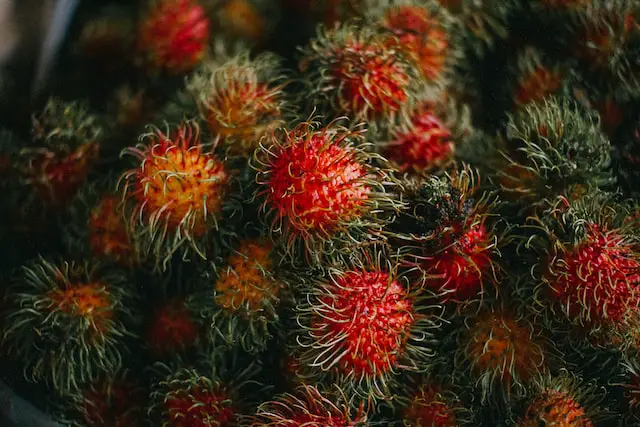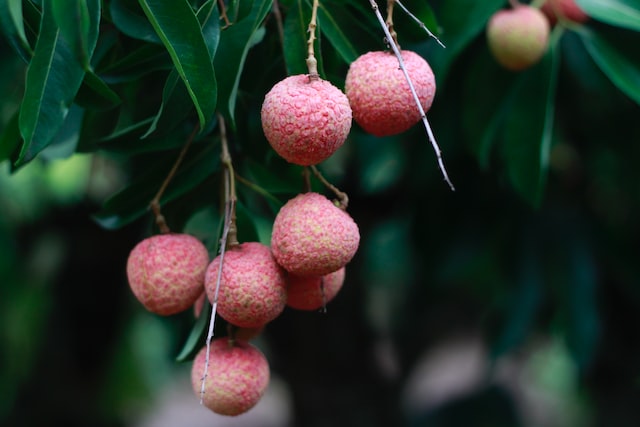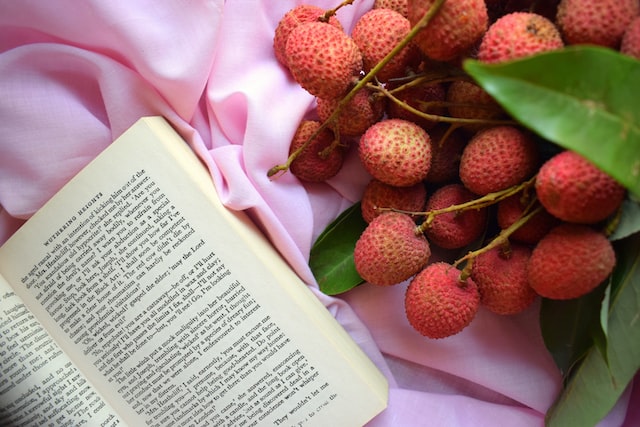Lychee and rambutan are two types of fruit that share a few similarities, but have some key differences. First and foremost, lychees are smaller than rambutans and have a sweeter taste. Secondly, lychees are more tart than rambutans, which means that they are often eaten as a digestive aid or with ice cream. Finally, lychees can be frozen whereas rambutans cannot. Knowing the different features of these two fruits will help you choose the right one for your dish or recipe.
Lychee and Rambutan
Lychee is a type of fruit that is native to Southeast Asia. It is a sweet, red fruit that averages about the size of a grape. Rambutan is another type of fruit that is native to Southeast Asia. It is a large, spiny, dark purple fruit that averages about the size of an apple.
Differences Between Lychee and Rambutan
Lychee and rambutan are two different types of fruit. Lychee is a small, sour fruit that is native to southeast Asia. Rambutan is a large, sweet fruit that is native to Indonesia and Malaysia.
Lychees are oval-shaped with smooth skin. They are green when they are unripe and turn yellow when they are ripe. There are two kinds of lychees: the Chinese lychee and the Japanese lychee. The Chinese lychee is smaller and has a more intense flavor than the Japanese lychee.
Rambutans are also oval-shaped but have a bumpy texture. They are green when they are unripe and turn brown or black when they are ripe. Rambutans can be either soft or hard; the hard ones tend to be juicier. There are three kinds of rambutans: the Indian rambutan, the Indonesian rambutan, and the Malaysian rambutan. The Indian rambutan is the largest of the three and has a sweeter taste than the other two varieties.
What is rambutan called in English?
(Photo by Joyce Romero on Unsplash )

Rambutan is a fruit that is popular in many parts of the world. It can be found in most grocery stores and is usually sold by the pound. The name rambutan is derived from the Indonesian word “rambutan,” which means “strawberry.” Lychee, on the other hand, is a tropical fruit that originates from China. There are several different types of lychees, but the most common variety is the litchi.
How many lychees should I eat a day?
There is no specific recommended daily amount for lychees as it varies depending on factors such as age, gender, weight, and activity level. However, moderate consumption as part of a balanced diet is generally considered safe.
When should we not eat lychee?
(Photo by Jamie Trinh on Unsplash )

There are certain situations when it is not recommended to eat lychee:
- If you have an allergy to lychee, it is best to avoid eating it.
- If the lychee fruit is unripe, it may contain toxins that can cause digestive issues.
- If the lychee has gone bad, it can cause food poisoning and should not be consumed.
- People with certain medical conditions, such as high blood pressure or diabetes, should speak with a doctor before incorporating lychee into their diet.
Who should not eat lychee
It is not recommended for people with the following conditions to eat lychee:
- Lychee allergy: Individuals with a known allergy to lychee should avoid eating it.
- Unripe fruit: Unripe lychee fruit may contain toxins that can cause digestive issues.
- Food poisoning: If the lychee has gone bad, it can cause food poisoning and should not be consumed.
- Medical conditions: People with medical conditions such as high blood pressure or diabetes should consult a doctor before incorporating lychee into their diet.
- Pregnant women: Some studies suggest that excessive consumption of lychee fruit during pregnancy may have harmful effects. It is best for pregnant women to consume lychee in moderation.
Does lychee burn fat?
Lychee is a type of fruit that many people believe can help you lose weight. The fruit is high in fiber and has a low calorie count, which may make it a good choice for people looking to slim down.
Is rambutan a Sri Lankan?
Rambutan (Nepal) is a fruit that is closely related to the lychee. The major difference between the two is that rambutan has a higher sugar content, providing a sweeter flavor. Rambutan is also more commonly found in Sri Lanka.
What are the heath benefits of lychee?
Lychee has several potential health benefits, including:
- Rich in vitamins and antioxidants: Lychee is a good source of vitamins C and B, and antioxidants, which can help boost the immune system and protect against cellular damage.
- Supports heart health: Lychee contains compounds that may help reduce the risk of heart disease by improving blood circulation and reducing cholesterol levels.
- Aids digestion: Lychee is high in fiber, which can help improve digestion and prevent constipation.
- Supports weight loss: Lychee is low in calories and high in fiber, making it a good food choice for those trying to lose weight.
- Improves skin health: The high vitamin C content in lychee can help improve skin health by protecting against damage from the sun and environmental pollutants.
- Boosts energy: Lychee is a good source of natural sugars that can provide a quick energy boost without the crash associated with processed sugars.
Note: It is always important to consult a healthcare professional before making any major changes to your diet.
What are the heath benefits of rabutan?
Rabutan is a fruit found in Southeast Asia that is similar to lychee. Both fruits are rich in antioxidants and contain high levels of vitamin C. Rabutan is also a good source of fiber, potassium, and vitamin B6. Some health benefits of consuming rabutan include reducing the risk of heart disease, cancer, cognitive decline, and diabetes.
Featured Image By – Photo by Akshika Singh on Unsplash








